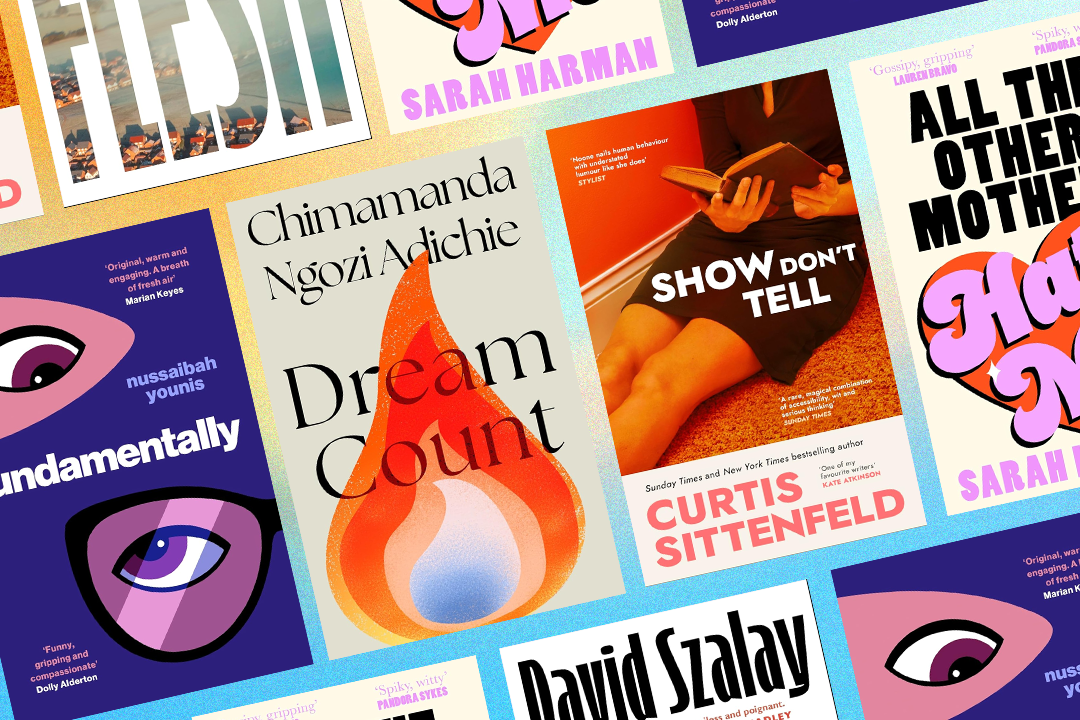Set in 1975, when prime minister Indira Gandhi declared a state of emergency due to civil unrest, this fine novel is the story of four strangers – a widow, a young student who has been uprooted from his idyllic hill station home and two tailors who have fled the caste violence of their native village. The quartet are thrust together, sharing a cramped apartment and facing an uncertain future in the middle of India’s political turmoil. Shortlisted for the 1996 Booker Prize, Mistry’s beautifully written novel is a literary tour de force.
Published in 1993, this huge tome – one of the longest novels published in a single volume in the English language – is a much-loved classic. Set in newly independent, post-partition India, it follows the stories of four families, focusing on Rupa Mehra’s efforts to arrange the marriage of her spirited student daughter Lata to “a suitable boy”. The first screen version of this epic story is currently being filmed in India and will be shown on BBC1 in late 2020. “It’s a charming, almost Austenesque story, with a delightfully relatable heroine, set against the turbulent background of India in the years following partition,” says TV screenwriter Andrew Davies.
Salman Rushdie’s classic novel has been feted by Booker judges an astonishing three times. It won the Booker in 1981, was judged to be the Booker of Bookers for the award’s 25th anniversary in 1993 and in 2008 was voted the greatest Booker Prize winner of all time. Born at the stroke of midnight, at the precise moment of India’s independence, Saleem Sinai, the novel’s protagonist, is one of 1,001 “midnight’s children” – all of whom have special gifts and are telepathically linked. Rushdie says in the introduction to the novel that in the west people tend to read the novel “as a fantasy” while in India readers think of it as “pretty realistic, almost a history book”.
When Kiran Desai’s second novel won the Booker Prize in 2006 head judge Hermione Lee described it as “a magnificent novel of humane breadth and wisdom, comic tenderness and powerful political acuteness”. Set in 1986, it’s the powerful and very accessible story of a bitter old judge who lives in a dilapidated mansion high in the Himalayas, his orphaned granddaughter Sai, who has fallen in love with her tutor, and his cook, whose son Biju is working in New York and trying to stay one step ahead of the US immigration services.
Gregory David Roberts’s rollercoaster life reads like a thriller. An ex-armed robber and reformed heroin addict, he escaped from an Australian prison to India, where he lived in a Mumbai slum, launched a free health clinic, joined the mafia and worked in the Bollywood movie industry. This page-turning debut novel is based on his own experiences in the Mumbai underworld and runs to a hefty 900 pages.
The enthralling story of Balram Halwai’s journey from “sweet, innocent village fool” to ruthless entrepreneur scooped the Booker Prize in 2008. This brilliant debut novel tells the searing tale of two Indias – one of them Balram’s home village, where sewage seeps down the road and children are “too lean and short for their age,” the other the city of Delhi, with its noisy shopping malls, traffic jams and slums. Look out for the film too – a Netflix adaptation with Rajkummar Rao and Priyanka Chopra in the lead roles.
Sunjeev Sahota’s second novel follows the lives of three migrant workers, Tochi, Avtar and Randeep, who flee India to look for work in England. The first half of the book features sections about their lives in India, relating their disparate reasons for moving to the other side of the world. Randeep marries to secure a visa, Avtar poses as a student and Tochi arrives in the UK on a fake passport in the back of a lorry. The book was shortlisted for the 2015 Booker Prize.
Shortlisted for the Booker Prize and the Costa Novel Award in 2014, Neel Mukherjee’s second novel is set in 1960s Kolkata and opens with the shocking account of a desperate man, who is unable to feed his starving wife and children and murders them before killing himself. This shocking scene is juxtaposed with the story of the wealthy Ghosh family, one of whom has become involved in extremist political activism. A powerful generational story of the chasm between the haves and have-nots.
First published in 1989, this book has a big title but Shashi Tharoor makes it clear from the start that it’s in deference to “its primary source of inspiration” – The Mahabharata, one of the two major Sanskrit epics of ancient India. In Sanskrit Maha means great and Bharata means India. Tharoor uses The Mahabharata as a framework for this satirical novel about the major Indian political events of the 20th century, from British colonial rule through to “the struggle for freedom and the triumphs and disappointments of Independence”.
When a traumatised young girl is found barely alive in a house where 13 people have been murdered, the local police assume she is the killer. But a feisty gin-swilling social worker brought in to review the case is convinced the girl has been framed and sets out to prove her innocence. Kishwar Desai wrote her stunning debut novel in just four weeks, driven by anger at the hidden scandal of killing baby girls that still exists in parts of India. It went on to win the Costa first novel award in 2010.






















